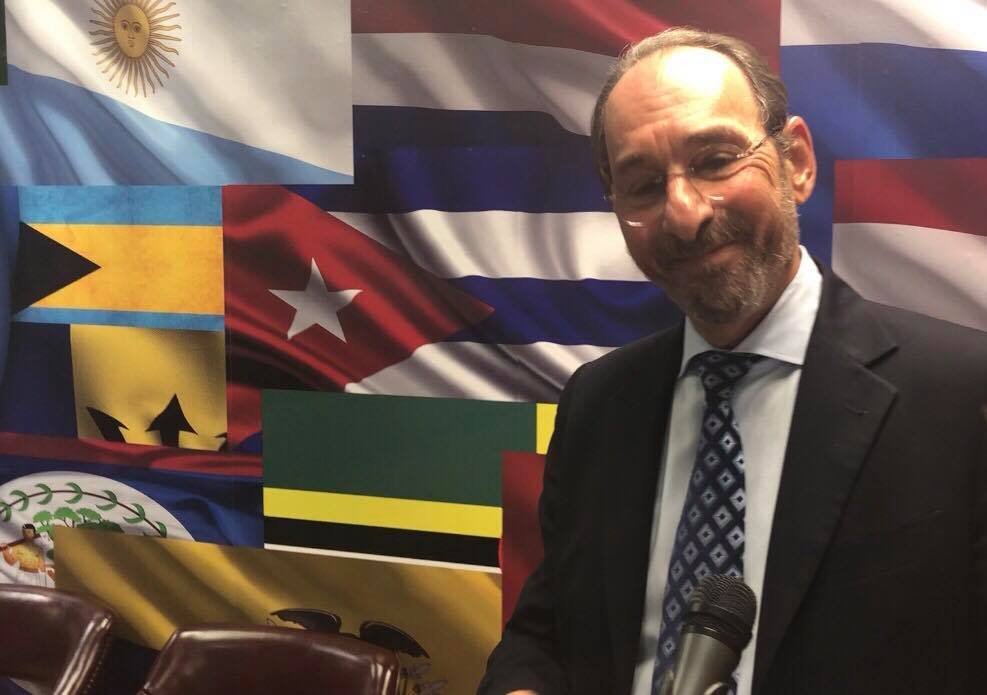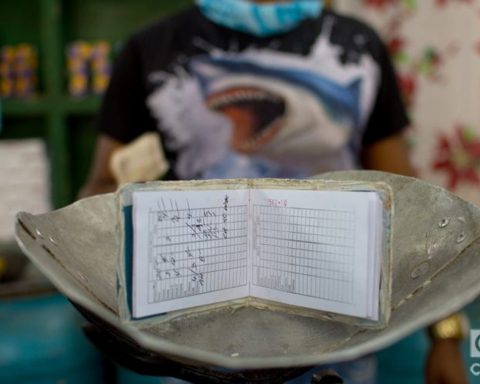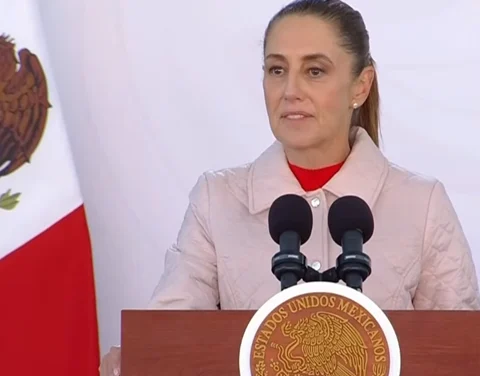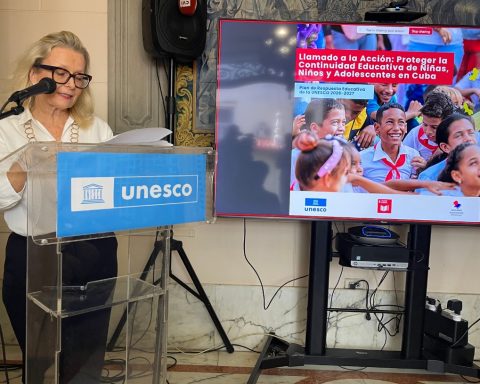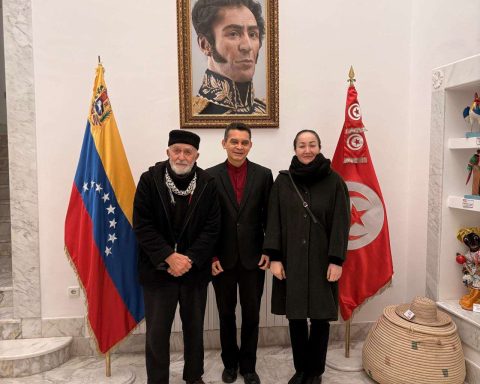MADRID, Spain.- This Friday, the Investiture Ceremony of the Academy of Cuban History in Exile took place in Miami. During the meeting, Dr. José Azel, one of the academics who joins the institution this year, referred to the generation of Cuban-Americans, called “the historic ones,” as a generation “that has bravely fought defending freedom, both in the adopted homeland and in the place of birth.”
José Azel, member of the board of directors of CubaNetin his Investiture Speech he recalled: “We are the generation of Cuban exiles who witnessed the creation of the totalitarian state in Cuba starting in 1959 and witnessed the sociopolitical devastation of the nation.”
Next, we reproduce in full the Investiture Speech of Dr. José Azel
They call us “the historical ones”, and I’m not sure if that label is laudatory or pejorative. We are the generation of Cuban exiles who witnessed the creation of the totalitarian state in Cuba starting in 1959 and witnessed the sociopolitical devastation of the nation.
We are the generation of aging heroes of the Cuban urban resistance of the 1960s, of the Bay of Pigs invasion, of the uprising in the Escambray mountains, of the Pedro Pan exodus, and of the Vietnam War. We are a generation of Cuban-Americans who have bravely fought for freedom, both in our adopted homeland and in our birthplace. We are a generation with a broken heart that I have compared to a beautiful story by the Spanish writer Jordi Sierra i Fabra: an enchanted meeting between the bohemian writer Frank Kafka, and a girl, also with a broken heart.
Kafka often presents protagonists who, like historical exiles, have found themselves isolated in strange or surreal situations, and have faced incomprehensible socio-bureaucratic powers. Kafka explores themes of alienation, existential anxiety, guilt, and the absurd.
According to the story, Kafka was walking through the Steglitz Park in Berlin and he finds a girl crying because she lost her doll. To calm her down, Kafka tells the girl that her doll was on a trip, that he was her postman, and that her doll would surely send him a letter the next day.
That night, Kafka writes the doll’s letter to replace the girl’s loss with a different reality. The next day, in the park, he reads the letter to the girl that says: “Please don’t cry, I’ve gone on a trip to see the world. I will write to you of my adventures.”
For three weeks, Kafka writes letters recounting the doll’s adventures and reads them to the girl. The doll grows up, goes to school, meets other people, and always assures her love for the girl, while complaining about the obligations of her life as a doll, which prevent her, for the time being, from returning to live with the girl.
At the end of three weeks, the girl stops missing the doll. Kafka has given her a new reality, curing her of her unhappiness.
As a last gift to the girl, Kafka gives her a new doll, something different from the original doll, with an accompanying letter that explains: “My travels have changed me…”.
After many years, the girl, now an adult, finds a letter stuck in an inadvertent crack in the beloved replacement doll. In it she reads: “Everything you love, you will eventually lose, but in the end, love will return in a different way.”
For some reason, as a Cuban exile who lost his country when he was thirteen, six decades ago, I strongly identify with that story. The loss of the country was certainly agonizing for me, as it was for my fellow exiles.
Like many of my generation of exiles, I have never returned, and I have never been able to visit my parents’ grave in the Colon Cemetery in Havana. For years, Kafka’s themes of alienation, existential anxiety, guilt, and the absurd were realities for me.
Those of us, the historical ones who fight against the Castro regime in the underground resistance and from exile, often feel like the isolated protagonists of Kafka, facing strange, surreal predicaments and incomprehensible socio-bureaucratic powers.
But like the girl in the story, we have learned not to suffer the loss of our native country by living a new and happy reality. And, like the doll, we have enjoyed a long journey to see the world and write about our adventures.
And yes, “our travels have changed us…”. Our new reality has cured our unhappiness. We have learned to appreciate individual rights to life, liberty, and property.
We have sought to learn about freedom and to enjoy it protected by the rule of law, which is its legal basis. We aspire to savor the prosperity that we can gain by contributing our talents to a free market economy, and to proudly build a future in freedom, and freedom for our children and grandchildren.
The youngest of our generation, now in their 70s, are necessarily passing on the responsibility and honor of defending liberty to a new generation.
We historicists are a generation that faced that tide in isolation and refused to recognize the totalitarian regime in our country. Today, however, we are sometimes derided as old hardliners who refuse to see a new reality that some say requires accommodating to the Cuban regime.
But we, the Cuban historical exiles, have been on the right side of history and it is worth highlighting the audacity and courage of those who saw what others did not see. We historicists reject the Cuban regime when others embraced it.
We historical exiles overcome fears, endure contempt and experience separation from family and friends. We are a generation of happy warriors who never gave up the dream of freedom for Cuba.
We are a generation of reflective nostalgics who miss the past, but do not want it to return, because we recognize that this world no longer exists.
Our experience of exile has lasted a lifetime, and the memories are fading. Our reflexive nostalgia, our longing, settles on our individual and cultural memory. We feel nostalgia for a place, but also for dreams and visions of a future that did not happen. Our story is not a caricature.
Granted, we have not yet succeeded in bringing freedom to Cuba. But we have admirably managed to transmit love for the country —both for the United States and for Cuba— to our children and grandchildren. They inherit our struggle with an innate identification with freedom.
Our children and grandchildren understand the free flow of information, economic freedom, human rights, political freedom, transparency, freedom of expression and the empowerment of the individual as a way of life.
We pass the torch to a generation that values freedom as a philosophical and moral achievement. Their tactics will be different, but it is a generation that will not be seduced by the spell of communist fanaticism. For us, this is, as Immanuel Kant would point out, an absolute moral requirement, our categorical imperative.
And, like the girl in the story, many years later, we historical people have rediscovered the love of the country in a previously unnoticed crack in life, this time in a different way from the love of the country that we lost.
We grew up admiring Martí and Maceo, and to that love we have added our admiration for Washington and Jefferson.
Receive information from CubaNet on your cell phone through WhatsApp. Send us a message with the word “CUBA” on the phone +1 (786) 316-2072, You can also subscribe to our electronic newsletter by giving click here.
